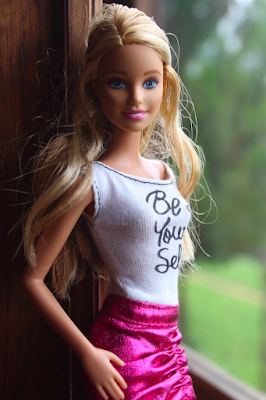When Popular Media Needs to Go Beyond a Dichotomy of Matriarchy vs. Patriarchy
The recent Barbie movie has in many ways caused a (positive) uproar among the world's feminists. The movie portrays the world of the titular character in which women hold all the powerful roles, while men (the many "Kens") are relegated to positions of mere "boyfriends" whose identity is defined solely by their relationship with the Barbies. The protagonist Barbie's belief in the superiority of the system, coupled with observations about, unlike in the Barbie world, many females remain lowly in the real world, serves as a powerful reminder that female empowerment still has a long way to go but is a worthy dream to pursue.
Progressive from the feminist point of view, perhaps, but by accentuating so much the shortfalls of a male-dominated society and proposing a female-centered alternative, the Barbie movie seems to have forgotten that the world has long moved on from a black-and-white world of gender dichotomy. With the rise of the LBGTQ society in the public consciousness, the concept of gender has become fluid, with plenty of people identifying as neither male nor female, but instead somewhere in between. It is hard to imagine where these individuals would fit in the world of Barbies and Kens.Indeed, by focusing so much on the idea of female power, the movie ends up stereotyping what constitutes "female" and also what constitutes "power." The prolific use of pink to represent Barbie subconsciously identifies the color with femininity. The fact that the ideal Barbie world is run by a female president, surrounded by female-only politicians, bureaucrats, and white-collar professionals (while men are relegated to the role of beach bums) entrenches the idea that power ultimately comes from your (high social class) professions rather than a confluence of ideas, influence, and human relations.
By perpetuating these gender and professional stereotypes, the movie offers an exceedingly incomplete idea of what an "ideal" world can look like and how people can strive to get there. Diversity within gender and professions is one thing, but it is also important to note that, for many people, communities, and societies, neither gender nor profession is one of the most important building blocks of social hierarchy and status. By glossing over factors ranging from race (it was good to see a multiracial cast for both Barbies and Kens, though) to religion, the audience is taught that social progress lies with limited factors.
Of course, it is simply too much to expect such a nuanced portrayal of human society from a short movie. After all, in its few hours, the movie also needs to cater to returns on investment, not the least finding new ways for Mattel to profit from its intellectual properties. There is not enough space, incentive, and money around to build up an extensive discussion on the complexity of human identity, without potentially boring to death millions of underaged viewers that Mattel is hoping the movie can rekindle loyalty toward its dolls and other toys.But still, the movie could realistically have, even briefly, made room for more qualifications than it allowed for. Scenes that specifically geared toward nuance, especially ones involving conversations between the protagonist Ken and Barbie, as well as between Barbie and the creator of Barbie, could have been used to address the world outside the black-and-white male vs. female one. Instead, by appealing solely to emotions of loss and confusion (valid that they may be in discovering a new world that the protagonists did not know), opportunities to dive deeper and educate further were lost.
Such shortcomings can have real-world implications, given how popular the Barbie movie has become in global box offices. A new generation of girls (and boys) could grow up with a deep "we vs. them" mentality when it comes to gender and professions. The concepts of patriarchy and matriarchy can become defined rigidly in absolute terms, devoid of compromises that are necessary in the real world to account for values ranging from human rights, diversity, and economic inclusivity. While human memories are short, global blockbusters can reshape cultures, for better or worse, in the short term.As the world moves toward ever greater recognition that identities are complex, fluid, and consist of almost endless permutations, popular media content that runs contrary to the trend should not be celebrated, no matter how hard it tries to portray itself as progressive in some way or form. As entertainment, the Barbie movie has broken new ground by tackling head-on the need to recognize that female empowerment continues to fall short. But by going overboard on that idea, it runs the risk of defining an ideal society in a stilted, genderized way.





Comments
Post a Comment